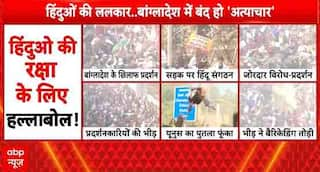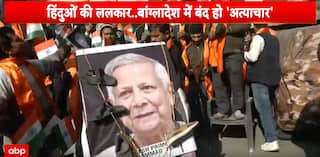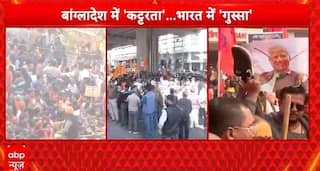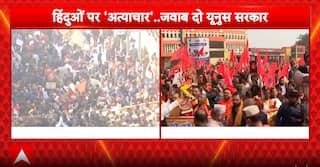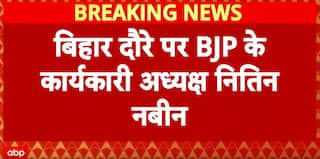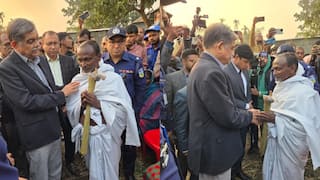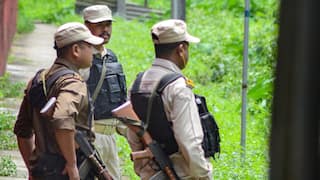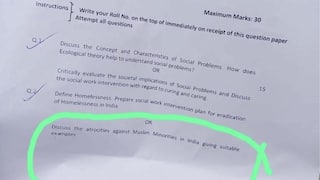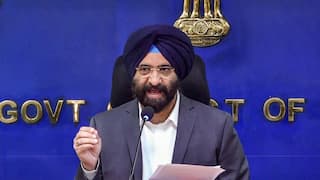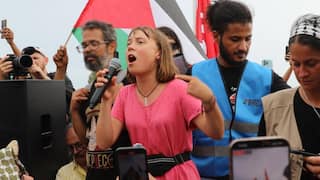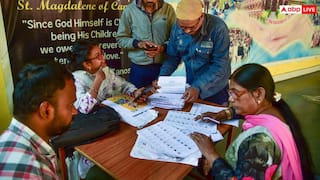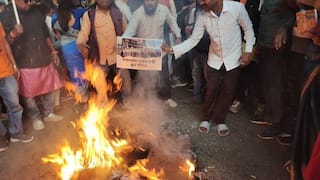Explorer
'It's permissible in Islam to shift mosque': Salman Nadwi's another emotional appeal to Muslims on Ayodhya dispute
In another emotional appeal to the Muslim community, former AIMPLB member Salman Nadwi reiterated his stand for an out-of-court settlement of the decades-long Ayodhya dispute, which according to him has turned into cancer for the country.

Muslim cleric Salman Nadwi. Photo: Facebook
NEW DELHI: In another emotional appeal to the Muslim community, former AIMPLB member Salman Nadwi reiterated his stand for an out-of-court settlement of the decades-long Ayodhya dispute, which according to him has turned into cancer for the country. Nadwi said there were provisions in Islam under which a mosque can be shifted or transferred to another place, and cited examples for the same from the Islamic history. "There are provisions, and precedents in the Shariah whereby a mosque, for different reasons, may be transferred to another property. A host of arguments and pieces of evidence exist which support these provisions," Nadwi said. Pointing to one such example, Nadwi said Umar, the second caliph of Islam, had shifted a mosque to another location and established a market of dates on its place. "The strongest evidence in favour of this is the example set by the Second Caliph. Hazrat Umar transferred a mosque in Kufa to another place and set up a dates-market at the place of the mosque," he said. Nadwi said after 1947, the conditions within India started acquiring a certain direction and indications of this shift were found in 1949 when deities were placed within the premises of Babri Masjid to convert it practically into a temple, where Namaz has not been possible in the last 69 years. "These events unfolded when great personalities of the Independence Movement were still alive. The movement to build a permanent temple in its place was initiated in 1990, eventually leading to both the demolition of Babri Masjid and the tragic loss of thousands of Muslims’ lives. The situation has turned into cancer for the country," he said. "In these circumstances, merely waiting for the judgment of the Supreme Court is neither a comprehensive nor a satisfactory solution. "From the point of view of a responsible community, to pave the way for reforms and Dawah to fellow countrymen in an atmosphere of peace, harmony and conciliation, the only way is to open discussion of transferring the mosque from the site and make an agreement to ensure the safety of other mosques and religious institutions throughout the country," he added. He said sensitive issues like these need to be dealt with wisdom, especially because the Muslim community in India has practically been "side-tracked". "It was and is the duty of the Muslim community to take measures in order to clarify any misconceptions that their fellow countrymen might have. Therefore, avoiding the approach of clash and conflict, the Muslim community should have adopted the path of mutual dialogue and must have engaged even the hardliners in discussion in the light of Hudaybia Treaty which is a significant milestone in Islamic History and should be taken as a frame of reference," Nadwi said. "The approach that was practically adopted (and continues to be pursued) proved disastrous not only on religious, social, Dawah associated and community-related fronts but also for political and administrative landscape," the cleric said. Nadwi, a prominent Muslim scholar, with other leaders had met the Art of Living founder Ravi Shankar in February this year and expressed support for an out-of-court settlement of the Ayodhya dispute and. He also supported AOL's proposal of shifting the Masjid outside to another place, following which he was sacked from the board by the AIMPLB. Nadwi termed his mediation talks with Sri Sri Ravi Shankar as a positive and historic move, which the Muslim board didn't support. "The start of talks with Sri Ravi Shankar on the Ram Mandir and Babri Masjid dispute was a positive and historic step. Unfortunately, at that time some members of the All India Muslim Personal Law Board opposed these talks. When analyzed, the stance of the Personal Law Board has not been appropriate in the case of both the Triple Talaq and the Ram Mandir-Babri Masjid dispute," he said. He also urged those who support his approach on the Ayodhya issue to share their opinion with his Human Welfare Board so that it can initiate a positive and constructive discussion in this regard.
Follow Breaking News on ABP Live for more latest stories and trending topics. Watch breaking news and top headlines online on ABP News LIVE TV
Read more

ABP Live News
Opinion










